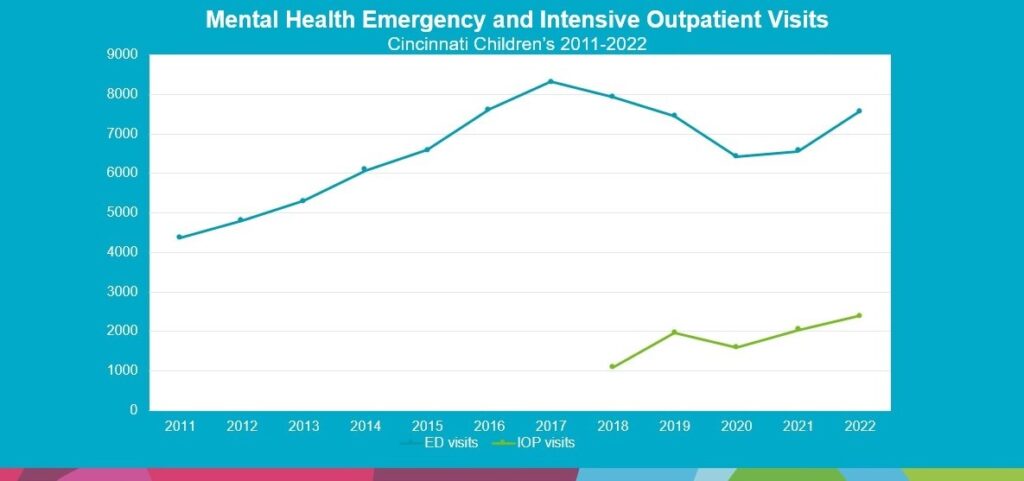
John P. Pestian, PhD, MBA
- Director, Computational Medicine Center
- Professor, UC Department of Pediatrics
About
Biography
Dr. Pestian's lab focuses on developing advanced technology for the care of neuropsychiatric illness. Using artificial intelligence, his team integrates analyses of trait and state characteristics for early identification of both neurological and psychiatric illness. His lab developed and implemented an automated, electronic health record surveillance system that processes clinician notes to identify epilepsy surgery candidates up to two years earlier than traditional approaches. The lab also focuses on earlier identification of individuals at risk of suicide, depression, and bipolar and anxiety disorders using verbal and non-verbal language.
Current projects include fusion of linguistic, acoustic, and visual cues that are being tested in selected Cincinnati Public Schools and Cincinnati Children’s clinics. Dr. Pestian and his lab have 18 issued patents and he is active in the entrepreneurial community. This activity has yielded over 500 jobs and one-half billion in revenue have been created. One invention, Processing Text With Domain-Specific Spreading Activation Methods, is a platform for neuropsychiatric research. Another, Optimization and Individualization of Medication Selection and Dosing, has been used for optimal mental health drug selection on more than 420,000 people. He and his colleagues have published more than 80 peer reviewed publications that focus on applied and translational sciences apropos to artificial intelligence.
He currently mentors five junior faculty, of which three have recently received funding from the National Institutes of Health (NIH). Dr. Pestian is an alumni of the NIH’s standing Study Section, Biomedical Library and Informatics Review Committee (BLIRC) of the National Library of Medicine, as well as the National Institute for Mental Health’s, Pathway to Independence (K99) study section.
MA: University of Steubenville, Steubenville, OH, 1987.
PhD: Virginia Commonwealth University, Richmond, VA, 1994.
Research Areas
Biomedical Informatics
Publications
A Machine Learning Approach to Identifying the Thought Markers of Suicidal Subjects: A Prospective Multicenter Trial. Suicide and Life-Threatening Behavior. 2017; 47:112-121.
A Controlled Trial Using Natural Language Processing to Examine the Language of Suicidal Adolescents in the Emergency Department. Suicide and Life-Threatening Behavior. 2016; 46:154-159.
Methodological Issues in Predicting Pediatric Epilepsy Surgery Candidates Through Natural Language Processing and Machine Learning. Biomedical Informatics Insights. 2016; 8:11-18.
Assessing the similarity of surface linguistic features related to epilepsy across pediatric hospitals. Journal of the American Medical Informatics Association : JAMIA. 2014; 21:866-870.
Sentiment Analysis of Suicide Notes: A Shared Task. Biomedical Informatics Insights. 2012; 5:3-16.
Nebulized Ipratropium Decreases Hospitalization Rate of Children with Severe Asthma • 389. Pediatric Research. 1998; 43:69.
Analyses of GWAS signal using GRIN identify additional genes contributing to suicidal behavior. Communications Biology. 2024; 7:1360.
High dimensional predictions of suicide risk in 4.2 million US Veterans using ensemble transfer learning. Scientific Reports. 2024; 14:1793.
Early Identification of Candidates for Epilepsy Surgery: A Multicenter, Machine Learning, Prospective Validation Study. Neurology. 2024; 102:e208048.
Addressing the Pediatric Mental Health Crisis: Moving from a Reactive to a Proactive System of Care. The Journal of Pediatrics. 2024; 265:113479.
From the Blog
TIME Explores A.I. as Tool for Suicide Prevention
John P. Pestian, PhD, MBA2/22/2024
Addressing the Mental Health Crisis Facing Our Youth: Cincinnati Children’s Takes a Proactive Approach
John P. Pestian, PhD, MBA, Tina L. Cheng, MD, MPH ...5/30/2023
The New Yorker Explores Mental Health Trajectories Project
John P. Pestian, PhD, MBA2/27/2023
‘Hackathon’ Focuses on Mental Health Trajectories Project
John P. Pestian, PhD, MBA10/5/2022
$10M Investment from Cincinnati Children’s Launches Ambitious Mental Health Mission
John P. Pestian, PhD, MBA, Tracy A. Glauser, MD11/8/2021
Digital Providers Surge to Support Global Mental Health During COVID-19 Pandemic
John P. Pestian, PhD, MBA, Tracy A. Glauser, MD2/10/2021









